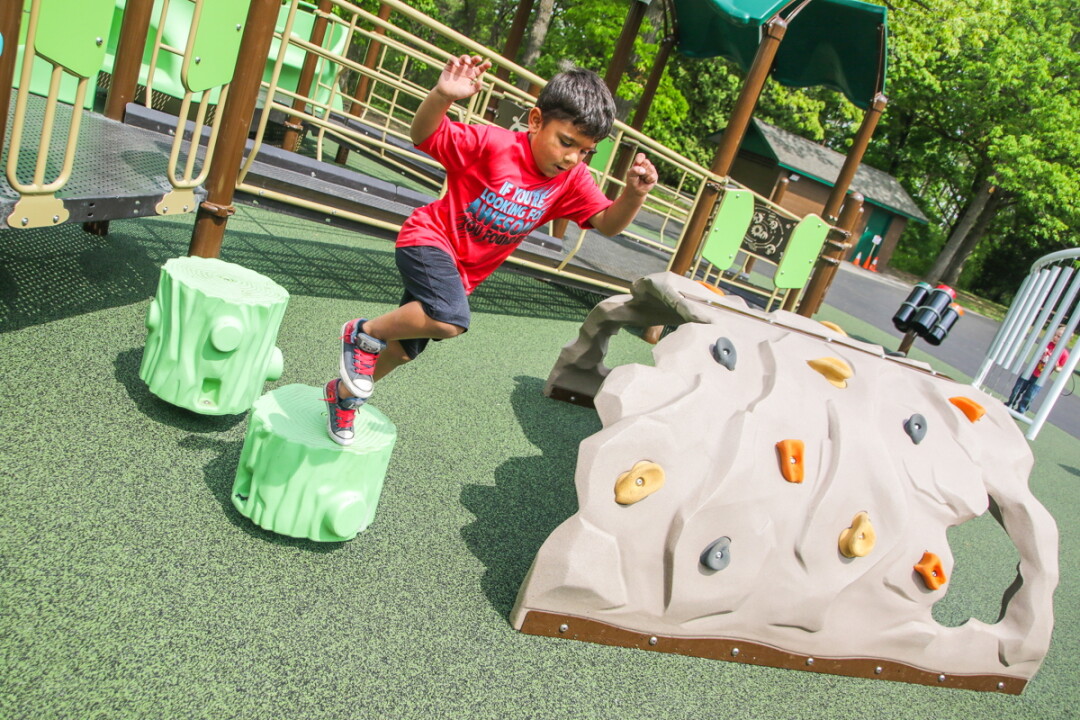What Would You Fund? E.C. Asks Residents to Vote Directly on Part of Budget
first-in-Wisconsin ‘participatory budgeting’ process gets rolling – and you can be a part of it
Tom Giffey, photos by Andrea Paulseth |

For most of us, municipal budgets are complex documents that feel far removed from our day-to-day lives. Short of running for a seat on the city council or county board ourselves, we assume we'd have little chance of impacting these budgets.
The new Empower Eau Claire initiative is designed to transform such attitudes by inviting any and all residents of the city to take part in a democratic and participatory budgeting process.
Empower Eau Claire – a first-of-its-kind program in Wisconsin – will distribute $300,000 via a public vote next spring. Unlike elections for public office, the vote will be open to all Eau Claire residents sixth grade and older – including noncitizens and temporary residents.
“We’re trying to engage as many people as possible,” said Ned Noel, a senior planner for the City of Eau Claire, who helps oversee the program. Participatory budgeting is supposed to be just that – participatory – which means members of the public are invited to get involved throughout the entire process by brainstorming ideas, developing and presenting proposals, and then voting for their favorites.
”
The deepest goal is that our residents have a direct role in local government. ... but instead of reacting to a program, they can create one.
NED NOEL
SENIOR PLANNER, CITY OF EAU CLAIRE
Participatory budgeting was first developed in Brazil in the 1980s, and the concept has since spread worldwide, including to a number of American cities, such as New York, Chicago, and Seattle – though Eau Claire is the first Wisconsin city to try it.
While the idea has been percolating in Eau Claire for a few years – in 2018, Councilmembers Andrew Werthmann and Catherine Emmanuelle successfully moved to set aside funds to create the program – it was delayed in part by the COVID-19 pandemic. Now, the city is busy rolling out a series of events that will culminate in next spring’s public vote.
“The deepest goal is that our residents have a direct role in local government,” Noel said. “They get to see how local government works in a microcosm of a program, but instead of reacting to a program, they can create one.”
Potential projects could include things such as community gardens, landscape beautification, dog parks, outdoor lighting, public signage, trash bins, skate parks, water fountains, bike stations, crosswalks, public restrooms – and that’s just the beginning. As long as it’s a tangible asset for the public – and not an ongoing program or position – it can become part of the participatory budgeting mix.
In the coming weeks, the city will host idea collection events (see below for dates and details). Once raw ideas have been collected, volunteers – called “budget delegates” – will assess them and turn them into more formalized proposals. Sometime during the spring, residents will be asked to vote on a menu of proposals – somewhere between 10 and 20, Noel estimated – and three to five ultimately will make the cut. (One of the rules is that no single project can ask for all of the available funds.) Noel envisions multiple voting events that will look less like municipal elections and more like science fairs, with storyboards presenting the merits of each possible project.
”
Being "invited to the table" is tokenism; being expected to actively engage to change the system is participation. We are transforming our local government away from the hierarchy of governments and towards the urgent needs of people within our communities.
SUSAN WOLFGRAM
Volunteer, Empower Eau Claire Steering Committee
Susan Wolfgram, one of seven volunteer members of Empower Eau Claire steering committee, calls participatory budgeting an innovation that can build trust between members of the public and elected leaders.
“When community members, particularly those that have historically been underrepresented, are not only ‘invited to the table’ but are asked for their expertise on how to engage diverse communities in the process, then we can say that we are designing an inclusive and equitable process,” she said. “Being ‘invited to the table’ is tokenism; being expected to actively engage to change the system is participation. We are transforming our local government away from the hierarchy of governments and towards the urgent needs of people within our communities, ‘redefining the table.’”
Do you have a great idea you’d like to champion? Interested in volunteering, or do you just want to learn more about the process? Find out about Empower Eau Claire at on the city’s website.
IDEA COLLECTION EVENTS
Citywide Events in Hmong:
Monday, Nov. 29, 6-7pm (informational session)
Monday, Dec. 13, 6-8pm (idea collection event)
Eau Claire Area Hmong Mutual Assistance Association, 1320 W. Clairemont Ave.Citywide Events in Spanish:
Tuesday, Nov 30, 6-7pm (informational session)
Tuesday, Dec. 14, 6-8pm (idea collection event)
La Luna Supermarket, 2824 London Road.Citywide Events in English:
At Large & North Central Neighborhoods
Thursday, Dec. 2, 6:30-8:30pm
North High School, Cafeteria/Commons, 1801 Piedmont Road
Details: Park in front large lot. Use main entrance.At Large & South Central Neighborhoods
Tuesday, Dec. 7, 6:30-8:30pm
South Middle School, Cafeteria, 2115 Mitscher Ave.
Details: Park in the Mitscher Avenue “back lot.” Use door #6.At Large & West Central Neighborhoods
Monday, Dec. 13, 6:30-8:30pm
DeLong Middle School, Cafeteria, 2000 Vine St.
Details: Parking available in front and back. Use main #1 door if using front lot. Go upstairs to cafeteria. Back parking on hill is good for ADA as cafeteria is on the 2nd floor. Use door #7.






















